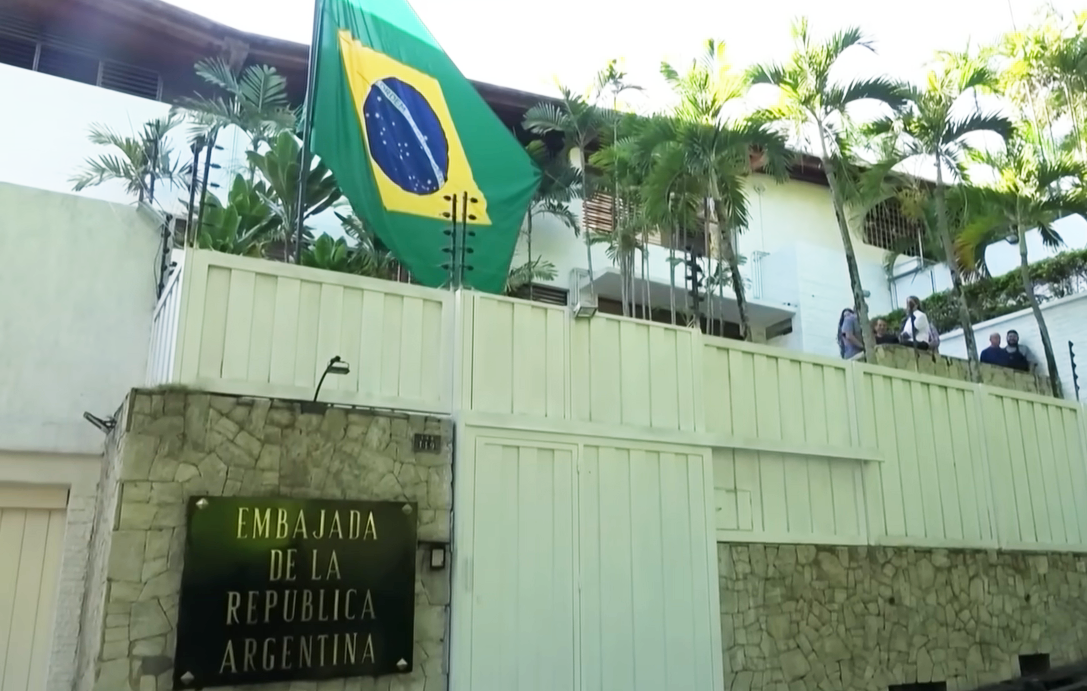The context: a forceful and irreversible trend
On July 28, there were tense moments in Caracas as the country awaited the official results of the presidential elections for the period 2025-2031. Late in the evening, the National Electoral Council announces that, with 80% of the tallies transmitted, there was a “resounding and irreversible trend” that gives the victory to Nicolás Maduro, with 51.2% of the votes. The opposition’s most voted candidate, Edmundo Gonzalez, reached 44.2%. International reactions quickly followed, ranging from acceptance and support, to calls for transparency, impartiality, and guarantees in the results, as well as the appeals for political solution. Some questioned the results presented by the Electoral Council and openly supported the opposition candidate.
The following day, Uruguay, Argentina, Costa Rica, Ecuador, Guatemala, Panama, Paraguay, Peru and the Dominican Republic issued a strong communiqué: they demanded “the complete review of the results with the presence of independent electoral observers to ensure respect for the will of the Venezuelan people who participated massively and peacefully”. Likewise, they requested an urgent meeting of the Permanent Council of the Organization of American States to discuss the issue. From the region, to these declarations are added those of the President of Chile, Gabriel Boric, who affirms that his country will not recognize “any result that is not verifiable”.
From this moment on, the scenario changes drastically in diplomatic terms: the government of Nicolás Maduro rejects the “interfering actions and declarations” and determines the immediate withdrawal of diplomatic personnel from Argentina, Chile, Costa Rica, Peru, Panama, Dominican Republic and Uruguay in Venezuelan territory. What does it mean? How is this issue regulated internationally? How does the link between the states involved continue?
Diplomatic relations
Diplomatic relations between States are regulated by the Vienna Convention of 1961, a treaty regulating diplomatic relations and the immunity of diplomatic personnel, as well as the inviolability of mission premises. All 193 members of the United Nations and their permanent observers are parties to the convention. In Palau or South Sudan, which are not signatories States, its provisions apply as part of international custom. In 1963, this treaty was supplemented by the Convention on Consular Relations, which regulates the protection of the interests of the sending State and its nationals, the promotion of commercial and cultural relations, the extension of passports and travel documents, and assistance to nationals, among other issues.
Now, returning to the situation in Venezuela and the intimation of withdrawal of diplomatic officials, it is important to specify that, according to Article 9 of the Vienna Convention on Diplomatic Relations, the receiving State “may at any time and without having to explain its decision, notify the sending State that the head of the mission or any member of the diplomatic staff of the mission is persona non grata or that any other member of the staff of the mission is not acceptable.” The haste and the controversial occasion in which the decision is communicated is, undoubtedly, a source of questioning. In fact, it was described as “unjustified and disproportionate” by Uruguay, and as a demonstration of “profound intolerance of divergence, essential in a democracy” by Chile.
Does this mean that diplomatic relations have been broken off? No. The Venezuelan communiqué does not contain an express statement to that effect, although Venezuelan diplomatic officials were also withdrawn from Argentina, Chile, Costa Rica, Peru, Panama, Dominican Republic and Uruguay. Legally, the ties are maintained and the interruption is temporary. So, how do relations between the parties continue, particularly in diplomatic and consular matters? Who will protect the interests of the nationals of the aforementioned States in Venezuelan territory or attend to them in case they require a passport, for example?
The situation in Argentina is an illustrative example. On August 1, the Foreign Ministry announced that Brazil will be responsible for “the custody of the premises of the Argentine mission in Caracas, including the Embassy and the Official Residence, its goods and archives, as well as the protection of its interests and those of Argentine nationals in Venezuelan territory”, following Article 45 of the Vienna Convention on Diplomatic Relations and Articles 8 and 27 of the Vienna Convention on Consular Relations.
Brazil will also be responsible for the protection of asylum seekers, an aspect of particular relevance in the current context. Since March 20, six members of the campaign of the opponents María Corina Machado and Edmundo González have been in asylum in the Argentine Embassy in Caracas. Even on July 29, one of them denounced on the social network X that members of the Directorate of Strategic and Tactical Actions were trying to forcefully enter the premises of the mission, complementing this with a live transmission on Instagram to document the tense moments.
Although so far, there is no pronouncement from the Argentine government. It should be noted that the Convention on Diplomatic Relations is also applicable, since in its Article 22 it indicates that the premises of the mission are inviolable, and agents of the receiving State may only enter with the authorization of the head of mission. Likewise, the receiving State has the obligation to protect the premises of accredited diplomatic missions.
The uncertain future
One week after the elections, the questionings and political reactions continue and the withdrawn diplomats return to their countries —in the case of Argentina with difficulties due to the closure of Venezuelan air space for its aircraft. However, the questions on how the interrupted diplomatic relations will be resolved are increasing. Almost two and a half million Venezuelan migrants live in Argentina, Chile, Costa Rica, Peru, Panama, Dominican Republic and Uruguay, according to data from the Interagency Coordination Platform for Refugees and Migrants from Venezuela. For Venezuelans in exile, uncertainty about the fate of their country, and their own, is increasing.
*Translated by Janaína Ruviaro da Silva from the original in Spanish.














